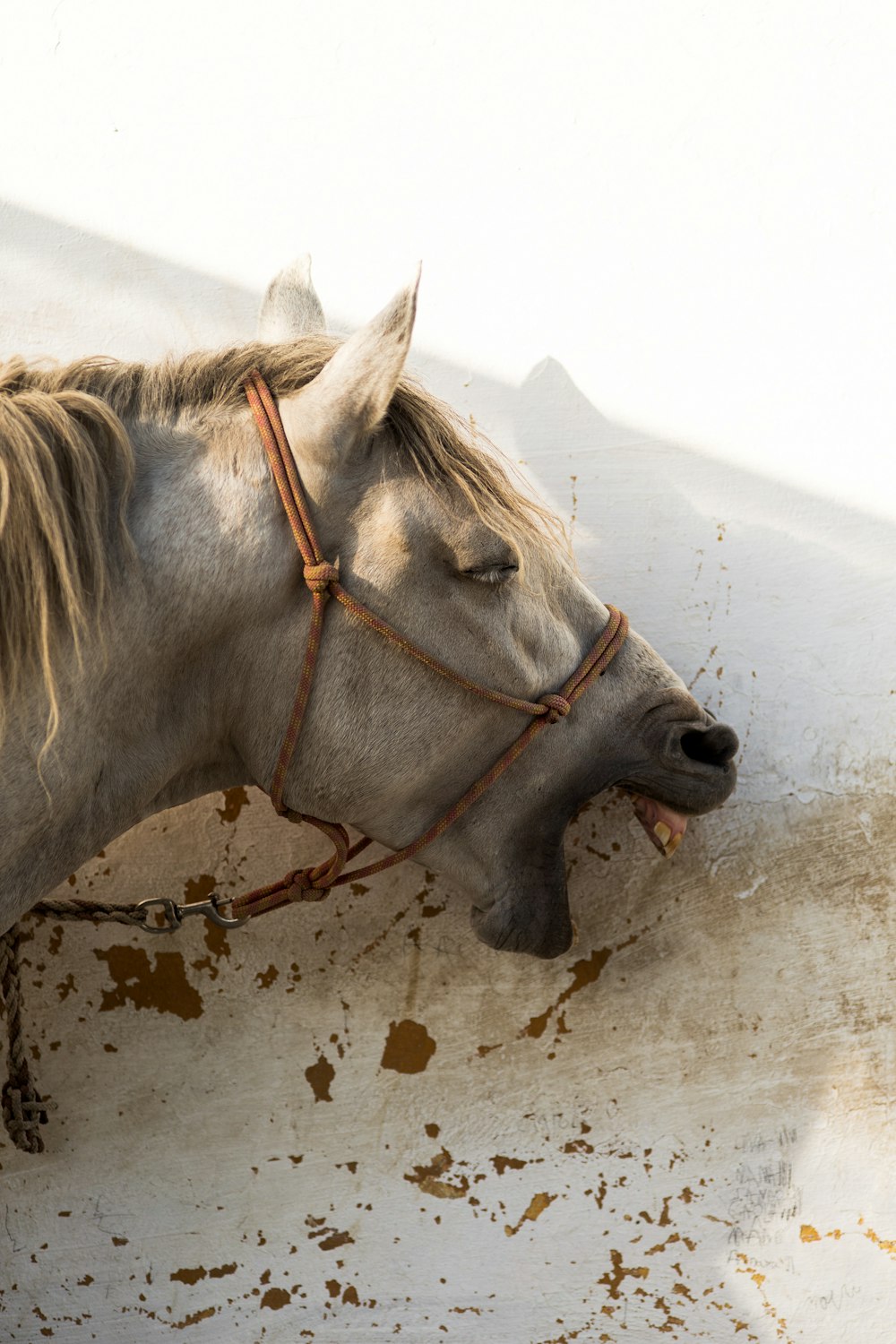Last Updated on September 13, 2020 by Allison Price
Horses are creatures of habit. They are prey animals who will do everything to hide any signs of weaknesses. Now this can become a problem as it’s down to us as responsible horse owners to spot the signs of illness.
It is important to observe during the horse ‘s daily check-ups to spot any small variation. These variations may show if something is not normal.
Usually, changes in the horse’s condition or behavior may be the first sign of illness. Early detection of an illness leads to developments and less serious complications. You can detect signs of declining health through changes in an animal’s appearance. It can show in its body condition or coat, or any abnormal enlargement or swelling.
Changes in behavior are also indicative that something may be wrong. These changes include loss of appetite, dullness, or nervousness. Also, alterations in body functions should all be matters of concern. Observe abnormal discharges, difficulty breathing, or abnormal passing of urine or droppings.
Another concern is that every horse has different reactions to an illness. That’s why it’s so important to spend time with your Horse. Get to know their normal behavior and temperament. That way, you’ll be able to spot when something is wrong.
Let’s take a look at how to spot the common signs of illness in a horse. We should also learn how to prevent small problems becoming full-blown health issues.
COMMON SYMPTOMS OF ILLNESS IN A HORSE

Rapid Weight Loss
The first sign of illness you can detect is loss of appetite. If the horse takes interest in the food, but fails to eat it or drops it from its mouth, call a vet to check on its teeth and mouth. When a horse fails to eat, it is also advisable to look at its droppings. If the droppings are very hard and the quantity is small, the animal is suffering from an impaction. If a horse eats nothing for 24 hours, there may be a serious problem. Call a veterinarian immediately should this happen.
Diarrhea
Any change in poop production is worth monitoring, but diarrhea deserves special attention. Diarrhea may bring an infectious disease which can cause severe illness or death. This disease can also spread to other horses which is the most alarming possible cause. Diarrhea can lead to rapid dehydration and electrolyte losses. This sometimes need “pretty intensive therapy” if left untreated for awhile.
Breakout of skin conditions
Ringworm, Rainscald and Mud Fever are three of the most common horse skin conditions.
Ringworm is a very contagious fungal infection. Rainscald is the result of the skin going soft following persistent saturation. Mud Fever is when the legs become inflamed and scaly after long exposure to wet and muddy conditions.
Lethargy, Uncharacteristic calm or Inactivity, and Separation from the group
It is a fact that horses to hang out in herds, thus a sick horse might stand off by himself and stay quiet. You’ll notice how that horse will hang his head a little lower and hold his ears a little less perked up than usual. The horse can’t also have his eyes quite as wide and bright as usual. These are some of the common signs you’ll spot with ease.
Teeth

Drooling, sores and swellings in the mouth are dental problems. These could be signs of serious underlying health problems. Watch your horse when it’s chewing to see if it’s favoring one side of its mouth over the other. Spilling of food or consistent head shaking could also be signs of dental issues.
Ears, Nose and Eyes
If you spot your horse with a low head and his ears pinned back, this is usually a sign of pain. You should get it checked out immediately. Thick discharge from the nostrils or wet, weeping eyes is not normal, either.
Fever
Body temperature is a numeric measurement, but you must first recognize when to take it. You can see subtle signs, like patchy sweating or faster-than-usual breathing. Also, body temperature, uncharacteristic respiratory rate and heart rate could show impending illness.
Coughs and Colds
Symptoms of a horse cold are like those seen in humans. These include thick nasal discharge, high temperature and swollen glands. Coughs may be a symptom of a cold, or caused by other reasons, like an allergic reaction. If you suspect your horse has a cough or cold, seek the advice of a vet immediately.
Lameness
Affected stones or thorns can cause lameness if not treated. This will raise the risk of injury for your horse and accidents for you.
Dark red or black patches on your horse’s foot along with discharge or foul smells are signs to call the vet.
Change in Coat Quality
If the coat looks a little rough or dull, hair loss or thinning, those are signs that something’s not quite right.
Metabolic disorders such as pituitary pars intermedia dysfunction can cause coat problems. This can lead to a lack of shedding and elongated hairs, as well as patchiness or other unusual patterns. Do not ignore any coat problems, as they may be usually related to a variety of internal diseases.
Gastric ulcers are a common culprit for poor coat quality.
How can you prevent your horse from getting ill?
- The best way to stop your horse from falling ill or catching and spreading a disease is to do some daily checks.
- Keep a basic daily check of your horse’s breathing, temperature and pulse before anything.
- Consult veterinarians when in doubt of your “check-up” skills. Always ask the right people.
- Vaccinations are also available for illnesses such as Equine Flu, Herpes and Tetanus. Speak to your vet to see what they recommend.
To stop the spread of diseases, one must follow the rules below:
- Make sure all vaccinations are up to date.
- Don’t let your horse share water sources with other animals outside your yard.
- Prevent contact between horses at your yard.
- Make sure each equine has its own equipment.
- Disinfect riding boots and wash clothing if you’ve visited other yards.



